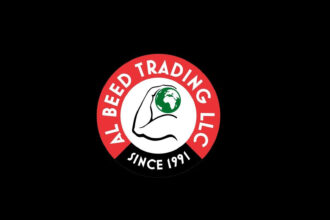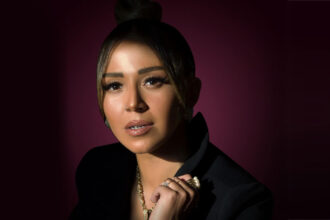In the United Arab Emirates (UAE), a country known for its rich multicultural fabric, sports have become a powerful arena for unity through diversity. In this unique environment, coaches are faced with the dynamic challenge—and immense opportunity—of leading multinational teams, where players come from a wide range of cultural, linguistic, and national backgrounds.
Whether it’s football clubs in Dubai, rugby squads in Abu Dhabi, or youth academies in Sharjah, UAE coaches are mastering the art of managing teams where players speak different languages, follow different customs, and bring varied styles of play. Rather than seeing these differences as obstacles, the best coaches are turning them into assets—forging strong, inclusive, and high-performing squads rooted in mutual respect and shared goals.
This is a look into how UAE coaches are navigating the complexities of diversity to build cohesive teams, where strength lies not in similarity, but in celebrated difference.
The UAE’s Sporting Melting Pot
The UAE is home to over 200 nationalities, and this diversity is vividly reflected in its sports scene. On any given field, you might see a South African rugby player, an Egyptian midfielder, an Indian wicketkeeper, a Filipino volleyball attacker, and an Emirati captain—all training under one coach, wearing one jersey, and striving for one goal.
Coaches in the UAE don’t just teach technique—they facilitate understanding across borders, helping players from all walks of life work as a single, synchronized unit. It’s a job that demands cultural intelligence, emotional maturity, and refined communication skills.
Building a Culture of Mutual Respect
Managing a multicultural team starts with creating a safe, respectful, and inclusive environment. UAE coaches are trained to recognize and honor the cultural sensitivities of their players. From prayer timings and dietary restrictions to holiday observances and communication preferences, top coaches take the time to learn about their players’ backgrounds.
Team rules are shaped by fairness, not favoritism. Celebrations are inclusive, and differences are not just tolerated—they’re acknowledged and appreciated. Some coaches go a step further by learning basic greetings in their players’ native languages or celebrating national days together as a team.
This culture of respect leads to stronger bonds, deeper trust, and a more united locker room—a critical foundation for success on the field.
Communication Across Languages
Language diversity is a reality UAE coaches face daily. While English and Arabic are widely used, many athletes feel most comfortable in their native tongues. This can lead to misunderstandings and friction if not managed carefully.
UAE coaches handle this by developing clear, universal communication styles. They use visual aids, demonstrations, diagrams, and even hand gestures to explain drills and strategies. Some teams employ assistant coaches or captains to act as language liaisons, ensuring no player feels left out.
Importantly, coaches foster a team language that goes beyond words—built on consistency, tone, and clarity. In the process, they teach athletes how to listen better, speak with intent, and work together despite linguistic barriers.
Blending Playing Styles and Philosophies
Different cultures often bring different approaches to sport. An African footballer might favor flair and spontaneity, while a European midfielder may focus on discipline and positioning. A wrestler trained in Central Asia may bring a hard-nosed style, while an athlete from Southeast Asia may rely on speed and agility.
Instead of forcing one dominant philosophy, UAE coaches look to blend strengths from different backgrounds, crafting hybrid systems that reflect the best of all worlds. This not only improves tactical versatility but fosters a sense of shared ownership.
Training drills, team talks, and match plans are designed to allow multiple expressions of talent, encouraging athletes to bring their unique flavor into a structured team strategy. As a result, the team becomes more adaptable—and more unpredictable to opponents.
Handling Conflict with Empathy and Clarity
In diverse squads, misunderstandings are inevitable—whether from language slips, cultural differences, or misinterpreted gestures. Great UAE coaches manage these moments not with authority alone, but with empathy.
They create open spaces for discussion, encouraging players to voice concerns without fear. When tensions arise, coaches mediate with fairness, ensuring all sides are heard. Team values such as unity, professionalism, and respect are consistently reinforced through daily actions—not just in rules, but in behavior modeled by the coaching staff.
Conflict becomes a learning opportunity, not a disruption—teaching players emotional intelligence, tolerance, and leadership.
Inclusive Leadership and Role Modeling
UAE coaches know that leadership must reflect the team’s diversity. Captains and vice-captains are often selected not only for skill, but for their ability to unite teammates from different backgrounds. Leaders are trained to be neutral, compassionate, and effective communicators.
Coaches also use diversity in their own staff—bringing assistant coaches, medical staff, and trainers from different cultures to reflect the team’s makeup. This sends a powerful message: inclusion starts at the top.
By modeling inclusivity, humility, and cooperation, coaches become more than instructors—they become moral compasses and community builders.
Celebrating Differences, Building Unity
Unity doesn’t mean uniformity. UAE coaches strike a balance between celebrating individual cultures and building collective identity.
Some teams hold monthly “Culture Days” where players share food, stories, and traditions from their home countries. Others create multicultural playlists for training or allow players to speak in their native languages during cool-downs. These small gestures build affection and familiarity across divides.
At the same time, coaches work to build a shared mission and team pride. Whether it’s wearing the same kit, saying the same pre-match chant, or striving toward a common goal, athletes feel they are part of something greater than themselves.
Performance Benefits of Diversity
Diversity doesn’t just make teams more compassionate—it makes them stronger and smarter. Coaches in the UAE report that multinational squads often outperform more homogeneous teams due to:
- Wider tactical understanding
- Better problem-solving under pressure
- Broader range of techniques and styles
- More adaptive team chemistry
- Stronger mental resilience
UAE coaches are learning to harness the diversity advantage, turning what once seemed like a challenge into a powerful competitive edge.
Real Stories from UAE Coaches
In Abu Dhabi, a basketball coach leads a squad made up of players from ten different countries. Practices are held in English, but halftime huddles might feature three or four languages. The coach uses body language, quick sketches, and culturally relevant analogies to get his message across—and the team now ranks among the top in the league.
In Dubai, a volleyball coach built a mixed-gender youth program with players from Southeast Asia, the Middle East, and Europe. She rotates cultural days every month and assigns mixed-nationality rooming pairs on away trips. Her team has become a model of diversity in sports education.
These are just a few examples of how UAE coaches are turning multiculturalism into strength.
Conclusion: A New Model for Coaching in a Global World
In an increasingly interconnected world, the ability to lead across cultures is no longer optional—it’s essential. UAE coaches are at the forefront of this evolution, turning diversity into unity and challenges into learning.
By embracing multiculturalism not as an obstacle, but as a treasure chest of insight, skill, and humanity, they are writing a new coaching playbook—one based on inclusion, empathy, and innovation.
In doing so, they are not only building stronger teams, but stronger societies—and offering a living example of how people from every background can come together, compete together, and succeed together. In the UAE, strength truly lies in diversity.









